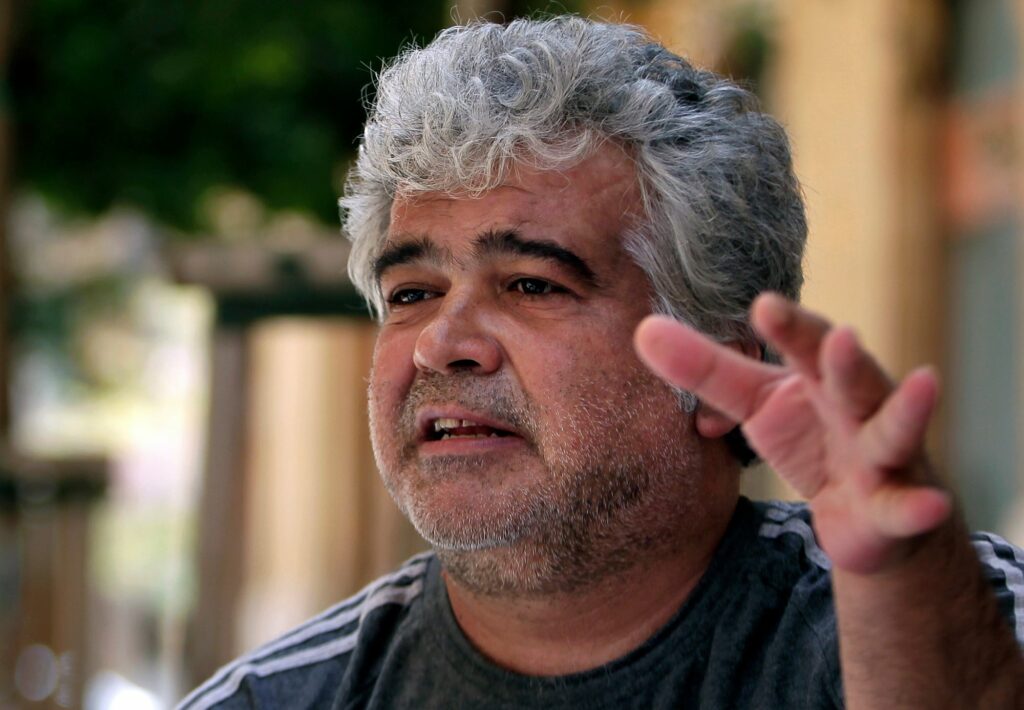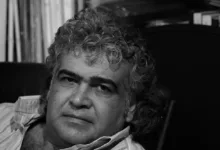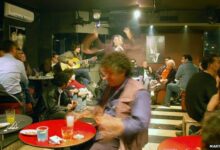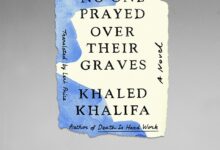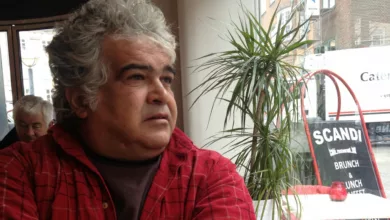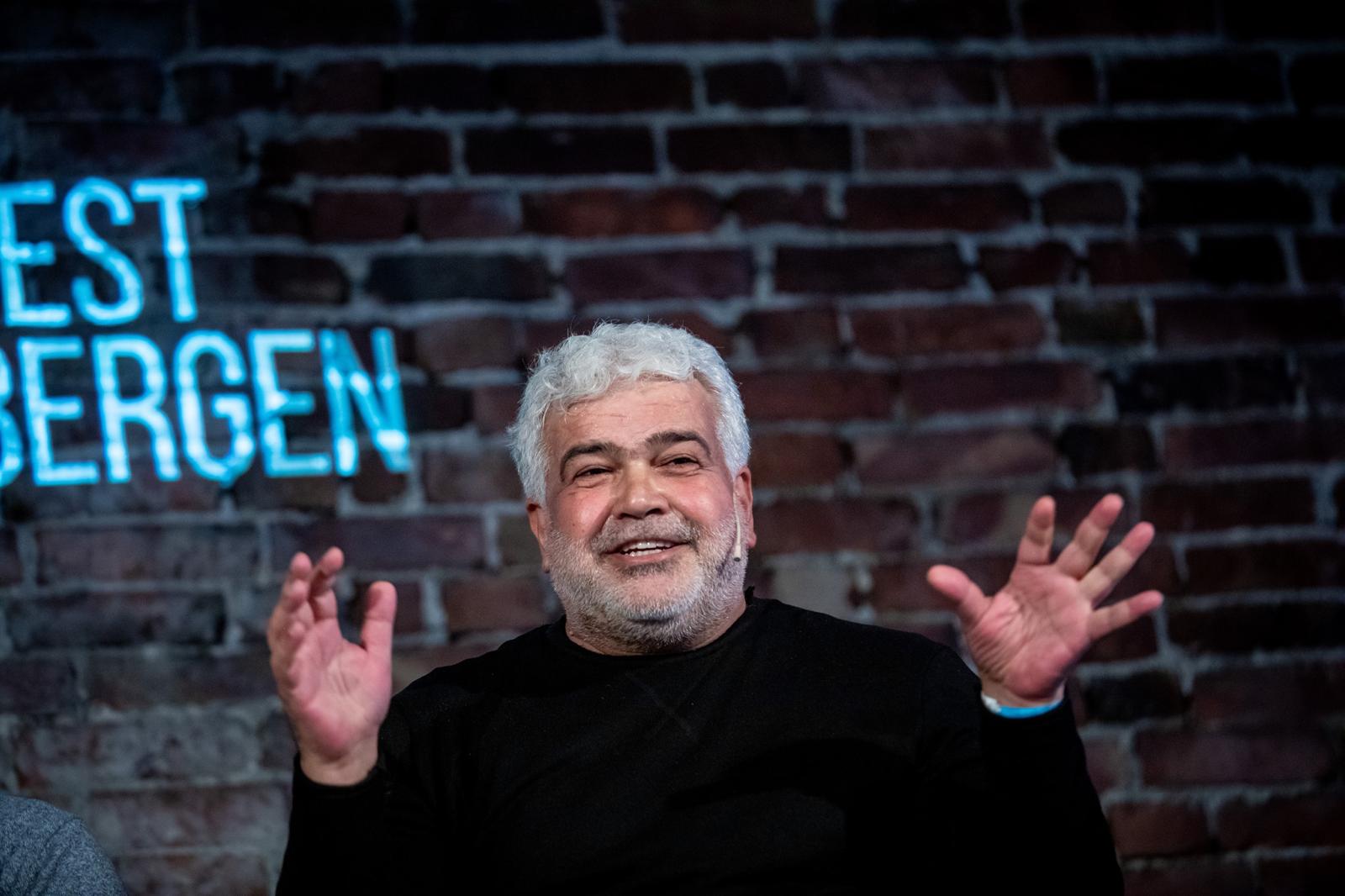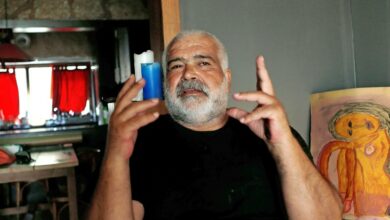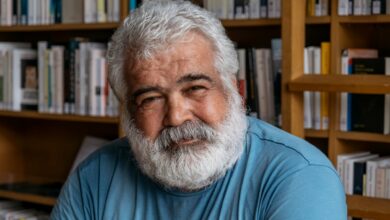My sister, whom I haven’t seen for more than two years, told me she was going to cross the sea in a rubber dinghy. She hung up, not wanting to hear what I thought. She merely said something profound and sentimental and entrusted her three children to my care in the event that she drowned. A few minutes later I tried to call the unfamiliar Turkish number back, but the phone had been turned off. Hundreds of images from our childhood flooded my memory. It’s not easy to say goodbye to half a century of your life and wait for someone you love to drown. My fingers and toes felt cold and my head empty, and I didn’t feel able to argue anyway. What can one offer a woman who has lost her home and everything she owns and, not wanting to lose her children too, carried them off into exile to seek a safe haven in Turkey? Things are not easy for a woman like her there. She looks like millions of other Syrian women and does not have any special skills. All that’s left is the hope of asylum, even if it requires crossing the sea in a rubber dinghy. It’s as if she’s trying to tell me something I know already – that the sea is Syrians’ only hope.
Maybe it was luck that saved my sister. She didn’t drown, and she found friends to help her in Greece and in the other countries she passed through. She certainly didn’t talk about unpleasant experiences with traffickers fleecing her out of what little money she had or leaving her destitute in an airport waiting room. In any case, she eventually reached her destination, and in Denmark found another group of friends who could provide support. Some of her fellow adventurers had drowned in scenes of unimaginable horror. Death may take many forms, but the bleakest and blackest of them all is death by drowning, which is a complete denial of everything the human body stands for. The drowned body becomes food for the fishes of the sea, and dissolves like salt in a bowl of water.
In the days that followed, I received similar messages from my younger brother, who had left his home in Aleppo and gone to Mersin in southern Turkey. From there, he left his family and sailed alone, embarking on an arduous journey that took him from Greece to Italy and finally to Sweden. Then came an endless stream of phone calls from friends and close relatives, such as my cousins, all telling me they were about to set sail. I no longer asked for details of the journey or discussed it with them. I wished them a safe trip and asked them to put our minds at rest when they arrived safely. Hundreds of thousands of Syrians are still thinking along the same lines. In coffee shops in Turkish towns and cities, they exchange the telephone numbers of traffickers and information about the best routes. They post about these things on Facebook, sometimes even in open forums.
I remember travelling from Damascus to Istanbul via Beirut in the summer of 2015, and being struck by the profile of the passengers, who almost all conformed to the same types. There was a large group of young people no more than 20 years old, and a group of women with only their children. To me they looked like childhood friends or relatives. It was clear from their questions that they were travelling abroad for the first time. After the plane took off from Damascus, they breathed a sigh of relief and started talking aloud about their plans for the future. They were travelling to Istanbul and then boarding another plane to a city close to the Greek border. Most of these young people were avoiding military service and enjoying the luxury of flying for the first time. Their journeys seemed to be pre-arranged: I noticed that there was a man in his 40s who gave them instructions after the plane took off, and again in the transit lounge at Beirut airport. The women were receiving the same instructions.
I thought of those youngsters, whose only hope now was to set sail across the sea. It wasn’t strange to me, but it was interesting, despite the anguish, that these friends should choose to emigrate as a group. I remembered our dreams when we were young, and how we promised each other as a group of friends to be eternally faithful, and how we planned our lives communally. These young people had decided to live or die together. Their eyes betrayed their fear, but together they managed to be braver. I watched them summon mutual support as they got ready to face the monster.
Most of my friends have left the country and are now refugees. All I can do is look for the names of the missing and the drowned and track my friends’ new addresses. Whenever a boat sinks, I find myself spinning like a madman, desperately searching for information, for lists of the drowned and any details about them – which towns or villages they were from, their family names, pictures of them. Again, in 2015, I went through the same hysterical search for the faces of detained friends among the photographs of the dead leaked from the regime’s prisons by the anonymous military photographer known as “Caesar”. I examined those faces on the off-chance that I might find among them any of the dozens of missing friends about whom we know nothing: no news, no messages passed on by word of mouth; no one has seen them or has any information about them. When I thought I recognised someone, I tried to remember other details about them – a mole on the cheek or a scar on the knee. But it was pointless. Looking for drowned or dead people and waiting for detainees to return is an act of absurdity, one matched only by the act of living in towns awaiting their turn to be destroyed.
The throngs of people leaving continued, so much so that in 2013 and 2014 we held communal farewell parties for friends departing for the unknown. We no longer debated the options or offered them our experience of cities we knew. Leaving the country became an epidemic that swept our lives. Places began to empty of their usual customers. Everything was changing very rapidly. The streets of the city were deserted, the windows were dark and telephones weren’t answered. Everything suggested imminent disaster. Everyone sensed it. I started to suffer from an overwhelming sense of loss; I felt I was losing all my friends and there was nothing I could do about it. Just like everyone else left inside the country, I was busy staying alive. We no longer thought about who would leave. The question had changed to “When are you going to leave?” or “Why are you still here?” For the first time, we had a taste of mass dispersion.
At first I didn’t believe they wouldn’t all come back. I thought their departure would be temporary. But after six years of this war, I’ve arranged my life around those people’s absences. The gap they left has been filled by another gap: I used to think about what they might look like now, wherever they might be, but I no longer do so. People like me, who live with characters they invent on paper, and who celebrate imagination, do not like to feel impotent. So I’ve become more attached to my life here, and have started to worry about being infected by the plague of displacement that has struck the city. I ask myself whether I would stay here if my house was destroyed. I don’t have an easy answer, but recently I’ve begun to come to terms with the idea. Yes, I would remain – but why? I don’t know, or perhaps I’m embarrassed by the knowledge that I simply want to cling to a place that has a smell I know well.
Ultimately, these are the delusions of a solitary writer – one who no longer has anything to lose, having observed, at length, Syrians attempting to win back their country, then losing everything. It’s as if the price Syrians must pay to recover their freedom and dignity includes every last stone, tree, nook and cranny, so that Syrians cannot, in fact, win back their country from the clutches of the dictatorship. They have lived in the shadow of that dictatorship for 50 years, during which time they’ve invented endless ways to resist it and coexist with its decay – at the very least by holding their tongues and waiting, defending a civic culture that is thousands of years old.
In recent years I have travelled across the world and met Syrians who emigrated years ago. I have observed their lives and concluded that refugees lose their identity but do not acquire a new one. Abandoning a small set of habits that constitute personal contentment would be intolerable to me. I’m thinking of my morning coffee at home, or coffee with my friends before going to work, chatting, of the city’s smells, dinners, the smell of rain in autumn. My refugee friends celebrated all these things, but then they abandoned them. And in recent months our phones calls and our messages via Facebook and email have become less frequent. The fall of the year’s first rain in Damascus used to be the occasion for a festival of nostalgia in which hundreds of thousands of refugees across the world would take part – but no longer. Our moments together are now few and far between, and we haven’t spoken much about the problems of assimilating into an alien culture, or about the idea of abandoning one’s original identity. I understand their frustrations and the extent of the difficulties they face, and at the same time I understand their concern for us – we who have chosen to stay where war lies in wait for us around every corner.
If you research Syrian refugees, you find there is something that distinguishes them from other refugees, which is to do with their great diversity of cultures and classes – but I don’t want to speak from a sociological perspective, and it would take hundreds of pages to explain. I would like to say something along the lines of how the refugees are Syria’s loss and the world’s gain, but I’m not sure that’s entirely true. Abandoning one’s identity is like ripping a heart out of a body. I think of the families of friends who have migrated en masse. For example, I received a phone call from the father of a friend, a man over 70 years old, who spoke to me in tears. He just wanted to speak to someone who understood his language, who understood the secrets of the language, who would listen to a joke in his version of colloquial Syrian and who would have a hearty laugh with him. A hearty laugh – that’s a metaphor for the way people like to live, and refugees in general do not find many reasons to laugh, especially in their first years in exile. But not long after that conversation, the phones stopped ringing. Everyone had dropped into the black hole of exile.
At first there were hundreds of them, then thousands, then hundreds of thousands, and now there are millions of refugees. I’m horrified by the pictures coming out of countries that don’t welcome the refugees, by pictures of fascists threatening refugees, by posters put up in some Lebanese towns imposing a curfew on Syrians after 6pm, by posters that openly insult refugees. I’m horrified by that Hungarian journalist who kicked a Syrian man carrying a child, running away from a war he did not choose. I think of those people with whom I claim to be acquainted. I think of their suffering, but at the same time I’m overwhelmed and I can’t understand what’s happening. I don’t want to surrender to the idea that we will wake up one day to find the city deserted – no people, no houses with lights on, no cars. And if we ask what happened, we’ll simply discover that everyone contributed to us becoming a society of refugees.
The picture seems murky and incomprehensible to people who haven’t met Syrians before, or who don’t know anything about the modern or ancient history of Syria. In the last 100 years, Syria has taken in large numbers of refugees, displaced people and people fleeing death, not to mention ancient migrations that have long made Syria a country that draws refugees. At the beginning of the last century, the Syrians took in Armenians, Chechens and Albanians who were fleeing massacres and wars, and they later received more than half a million Palestinians after the disaster of 1948 and the war of June 1967. The process reached its climax when Syria accepted more than three million displaced Iraqis in 2003 after Baghdad was occupied by the US. During the 2006 war in Lebanon, Syrians took in hundreds of thousands of Lebanese, and Syria has not closed its borders to refugees for a single day since the beginning of the 20th century. Numerous different peoples have settled in the country and made it their home.
Throughout the last century, Syria was also a place from which people emigrated, but not as refugees. The big migrations of the late 19th and early 20th century saw hundreds of thousands of Syrians leave for the US and Latin America. These economic migrations were, on the whole, a significant success, and the latest statistics circulating in 2006 spoke of 20 million people of Syrian origin in the diaspora, most of them in Argentina and Brazil. The circumstances that forced these migrants to leave their country were completely different from those faced by today’s refugees, who will end up numbering more than seven million people. Most of them live in camps in Jordan and Lebanon, in conditions of unimaginable misery and deprivation.
Even if the refugees in the Turkish camps seem to be better off, the magnitude of the problems they face cannot be ignored, especially when it comes to schooling: a whole generation of Syrian children will be deprived of education. The situation is better for the lucky ones whose boats have not sunk, and who have managed to reach countries in Europe that are sympathetic towards refugees, such as Germany and France. But in general, it’s impossible to imagine how bad conditions are for the great mass of refugees, such as those who live in the Zaatari camp in Jordan, and how deprived they are of their most basic human rights. On top of that there is the constant threat that the borders will be closed in the face of people fleeing the continuing war.
But one must also remember that, for the past 50 years, Syria has been a country that expels its own citizens. For the past 50 years, the regimes of President Hafez al-Assad and his son and successor, Bashar, have ruled with violent repression and denied the people their most basic human rights; they have turned Syria into a kingdom of fear and dread, from which people wanted to flee. Hundreds of thousands of Syrians live in the Gulf states, while millions more are acquiring their higher education in Europe and the US, and will live out their lives there. Some people say there are 10,000 Syrian doctors in France alone, and a similar number in the US and other countries.
The regime has not only driven these talented people into exile, but has also pursued them in their places of refuge. It has planted suspicion among them, threatened them through family members still living in Syria, deprived them of the chance to visit their mother country, and thwarted persistent efforts by exiled Syrians to find out about one another and form pressure groups in the countries where they now live. Emigrant and exiled Syrians have always seemed to be in a sorry state compared to other groups who have been through the same experience but were able to hold together, support each other and help propagate their original culture.
What Syrians still cannot understand is how they have been transformed from a people who received refugees into refugees themselves – people who suffer bitterly wherever they go. Borders are closed in their faces. Their clothing, their hearts and the lines on their hands are examined in detail. Anyone who has witnessed this horrific ritual will have also seen how the world, after abandoning the Syrians and even allowing them to be slaughtered, murdered and drowned, suddenly finds cause for sympathy in a single photograph – such as the picture of young Alan Kurdi dead on the beach. The picture shook the world for several days, but was then filed away, just as attempts to find reasons for the Syrian tragedy and ways to bring it to an end have been. A similar picture will show up from time to time, and through it the world will be able to offer its sympathy for people living under bomb raids by Russian and Syrian air force planes.
This has been going on for six years, without the world thinking seriously about how to stop the bloodshed. Syria is the victim of a public execution. The formation of Islamic State is but one piece of horrible evidence that the world has abandoned its moral duty to support people in their struggle for peace and democracy.
Although asking questions is a central principle of European culture and modernity, in this case questioning appears to be all but forbidden. No one is asking who created a fascistic, dreadful and criminal organisation such as Isis, who has financed it, who enabled it to occupy whole cities or who turned a blind eye to swarms of Isis fighters crossing the desert between the Syrian city of Raqqa and the Iraqi city of Mosul. This organisation’s vehicles move in a disciplined manner and in long convoys, behaving like a proper state with a sovereignty that the world seems to respect, despite its public protestations. The fact that these questions are not seriously posed today will destroy all the values of civilisation that humanity has defended and paid a heavy price to establish. I mean values of justice, accountability for war crimes, democracy and the right to self-determination. This is what has happened. Mankind has abandoned its values.
There is now a terrifying ghoul called Isis, which people are always talking about destroying, saying how hard it will be. It is one of the reasons why millions of refugees have gone into exile and why whole cities have been depopulated. In the very near future, the idea of installing new ethnicities, nationalities and sects in place of others might become acceptable, or the price to pay for stopping the war and the bloodshed of innocent civilians. But no one speaks about the role of the regime and its allies.
The issue in Syria is not one of refugees, but of a whole population either being slaughtered or forced to flee while the world stands silently by. It is also about the lies circulated by heads of state, especially western ones, over the need to protect civilians and not force inhabitants out of their homes – familiar statements issued to ease the consciences of those who make and promote them, but ineffective in stopping war or bringing criminals to international justice.
Images don’t disappear easily, and it brings me little satisfaction to meet friends I have lost touch with when I visit the cities they now live in. I remember when I was in Oslo in 2013, and a refugee friend of mine came to where I was taking part in a seminar. It was too much for her, and she cried throughout the seminar; seeing her in tears was too much for me. The seminar came to a halt for a few minutes, but it was difficult to explain the emotions that we shared, the bitterness of exile, the uprooting of a person from their rightful place. The majority will live on social benefits provided by their countries of exile, and many will live in order to bring up a new generation, one that is robust and acclimatised to their new life – a generation, however, that will not know the meaning of the life their fathers and mothers once lived. Two lives, side by side, that will not merge, however hard they try. And the story will not end until all the eyewitnesses have died, until fathers and grandfathers are dead, so that children living in refuge can be at peace in their new environment, enjoying their attachment to their acquired identity. But until these witnesses die, we have to imagine a cord of hope that will stretch from Berlin and other German, French, Turkish and Scandinavian cities to towns and villages throughout Syria.
My brother has now obtained the right to reunite his family, and he cannot hide his happiness that the pain of separation will now come to an end. He is learning Swedish, which I doubt he will master, for he is almost 50 years old. My sister is learning Danish, and in the best case scenario she will learn a few dozen phrases that will enable her to buy bunches of parsley for the tabbouleh she makes so well, and to explain how to make it to her neighbours.
The rest of my friends are trying, by various means, to assure us that they are happy in their new places of exile. Meanwhile, those of us who have stayed are dying one by one, family by family, so much so that the idea of an empty city could become a reality within a few years. But I remain convinced that refugees lose their sense of identity, for they cannot obtain a new one or completely forget their old one. To be a refugee is to live in a void – it is to lead a painful life, however hard we try to embellish it.
Translated from Arabic by Jonathan Wright. This piece is taken from Refugees Worldwide, an anthology of writing commissioned as part of a project run by the International Literature Festival Berlin. A pre-purchase crowdfunding campaign has been set up by Ragpicker Press to cover printing costs for the English-language edition. The book will be published on 7 September and proceeds will be donated to Refugees International.
Published on The Guardian Here

